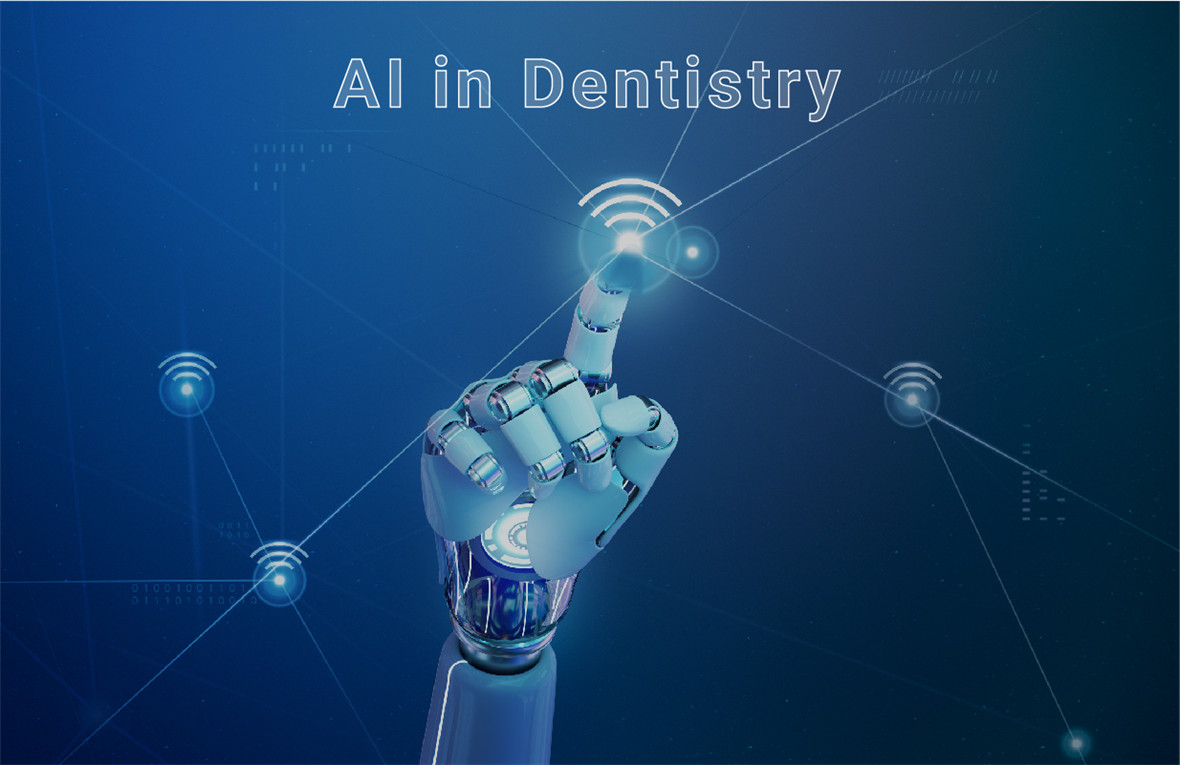
The field of dentistry has come a long way from its humble beginnings, with the advent of digital dentistry providing numerous advancements in recent years. One of the most promising developments in this area is the integration of artificial intelligence (AI) into various aspects of dental care. This blog post will delve into how AI is revolutionizing digital dentistry, offering unprecedented diagnostic capabilities, treatment planning, and patient care.
AI for Enhanced Diagnostic Capabilities
One of the most significant ways AI is impacting digital dentistry is through its ability to improve diagnostic accuracy. Machine learning algorithms are being developed to analyze dental radiographs (such as X-rays) and detect dental conditions that might be missed by the human eye.
For instance, a study published in the Journal of the American Dental Association (JADA) in 2021 found that AI algorithms were able to detect dental caries (cavities) with an accuracy of 94.5%, significantly higher than the 79.2% achieved by human dentists1. This level of accuracy can lead to more timely interventions and, ultimately, better oral health outcomes for patients.
AI-Powered Treatment Planning and Customization
Another exciting application of AI in digital dentistry lies in treatment planning and customization. By analyzing a patient's dental scans and other relevant data, AI algorithms can make highly personalized treatment recommendations, taking into account factors such as the patient's oral health history, current dental issues, and aesthetic preferences.
For example, AI is being utilized in orthodontics to plan and design clear aligner treatments (such as Invisalign) with greater precision and efficiency. This technology enables dental professionals to create a virtual 3D model of a patient's mouth, simulate the movement of teeth during treatment, and customize the aligners for optimal fit and comfort.
Patient Engagement and Education
AI is also being used to enhance patient engagement and education. Chatbot technology, powered by natural language processing (NLP) and machine learning, can assist in answering patients' questions about dental care, appointment scheduling, and treatment options. These AI chatbots can provide real-time support and guidance, helping patients make informed decisions about their oral health and alleviating some of the burdens on dental professionals.
Furthermore, AI-driven tools can provide personalized oral health education materials, tailored to a patient's specific needs and preferences. This can help patients better understand their oral health, learn about preventive measures, and feel more empowered to take control of their dental care.
The Future of AI in Digital Dentistry
The integration of AI into digital dentistry is still in its early stages, but the potential for growth and innovation is immense. As AI algorithms continue to improve and become more sophisticated, we can expect to see further advancements in areas such as:
• Predictive analytics for identifying patients at high risk of oral health issues
• Automated treatment monitoring and progress tracking
• Enhanced collaboration between dental professionals through AI-driven communication tools
Ultimately, AI has the potential to transform the way we approach dental care, making it more efficient, accurate, and personalized than ever before.
In conclusion, AI is revolutionizing digital dentistry by enhancing diagnostic capabilities, personalizing treatment planning, and improving patient engagement and education. As the technology continues to advance, we can expect to see even more exciting innovations in the field of dental care, making it more accessible and effective for patients worldwide.
Post time: Apr-13-2023





